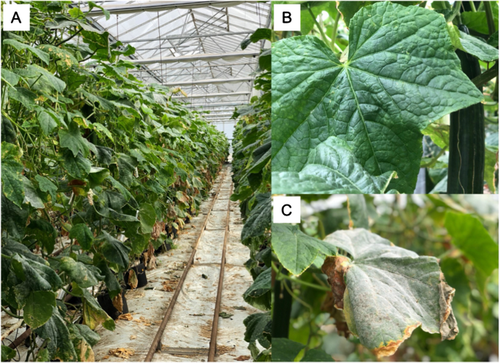Agronomy for Sustainable Development ( IF 7.3 ) Pub Date : 2024-04-04 , DOI: 10.1007/s13593-024-00957-5 Åsa Lankinen , Johanna Witzell , Kristin Aleklett , Sara Furenhed , Kristina Karlsson Green , Meike Latz , Erland Liljeroth , Rebecca Larsson , Klara Löfkvist , Johan Meijer , Audrius Menkis , Velemir Ninkovic , Åke Olson , Laura Grenville-Briggs

|
Plant production systems worldwide are struggling to meet the diverse and increasing needs of humankind while also facing challenges such as climate change and biodiversity loss. This, combined with the desirable transition from the use of conventional pesticides to more sustainable plant protection solutions, has led to an urgent, and increasing, need for low-risk plant protection products (PPPs) to be developed, applied, and integrated into management practices across all types of plant production systems. Despite a high demand from end users and consumers together with joint political goals at the EU level to replace conventional pesticides, the number of low-risk PPPs on the European market remains low, in comparison to synthetic agrochemicals. In this review, we summarize knowledge about the policy, technical, and administrative issues hampering the process of bringing new low-risk PPPs to the European market. We present an overview of the challenges in using the low-risk PPPs that are currently available within the EU agricultural, horticultural, and forestry sectors. We describe the variation in modes of action and the limitations associated with different application techniques and give concrete examples of problems and solutions from Swedish plant production sectors, in contrast to global perspectives as demonstrated by examples from African agriculture. Finally, we conclude that trans-sectoral, multi-actor approaches are required and provide suggestions on how to address the remaining knowledge gaps related to efficiency, application, and economics of low-risk PPP use in Integrated Pest Management (IPM) solutions for plant protection to improve future food security in Europe.
中文翻译:

在可持续生产中增加使用低风险植保产品的挑战和机遇。回顾
世界各地的植物生产系统正在努力满足人类多样化和日益增长的需求,同时也面临着气候变化和生物多样性丧失等挑战。再加上从使用传统农药到更可持续的植物保护解决方案的理想过渡,导致对开发、应用和纳入管理的低风险植物保护产品 (PPP) 的迫切且日益增长的需求所有类型的工厂生产系统的实践。尽管最终用户和消费者的需求很高,而且欧盟层面也有取代传统农药的共同政治目标,但与合成农用化学品相比,欧洲市场上低风险 PPP 的数量仍然很少。在本次审查中,我们总结了阻碍将新的低风险 PPP 引入欧洲市场的政策、技术和管理问题的知识。我们概述了使用欧盟农业、园艺和林业部门目前可用的低风险 PPP 所面临的挑战。我们描述了行动模式的变化以及与不同应用技术相关的局限性,并给出了瑞典植物生产部门的问题和解决方案的具体例子,与非洲农业例子所展示的全球视角形成鲜明对比。最后,我们得出结论,需要采取跨部门、多参与者的方法,并就如何解决植物病虫害综合治理 (IPM) 解决方案中低风险 PPP 使用的效率、应用和经济性相关的剩余知识差距提供建议保护以改善欧洲未来的粮食安全。



























 京公网安备 11010802027423号
京公网安备 11010802027423号